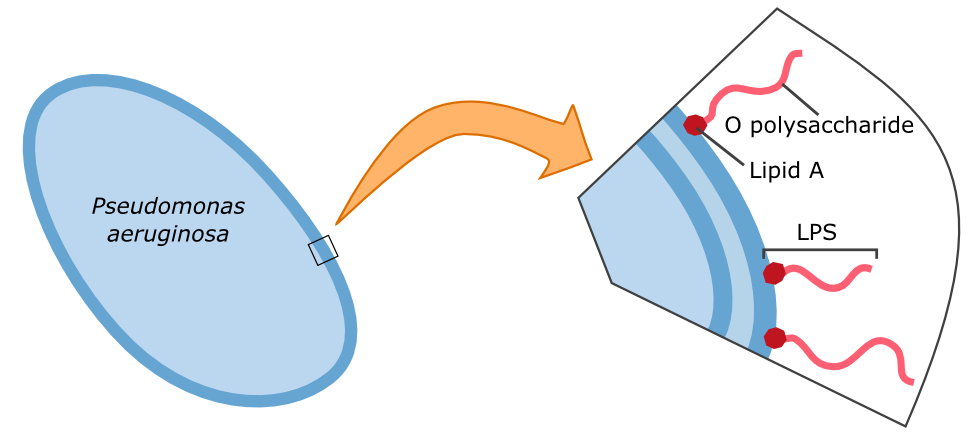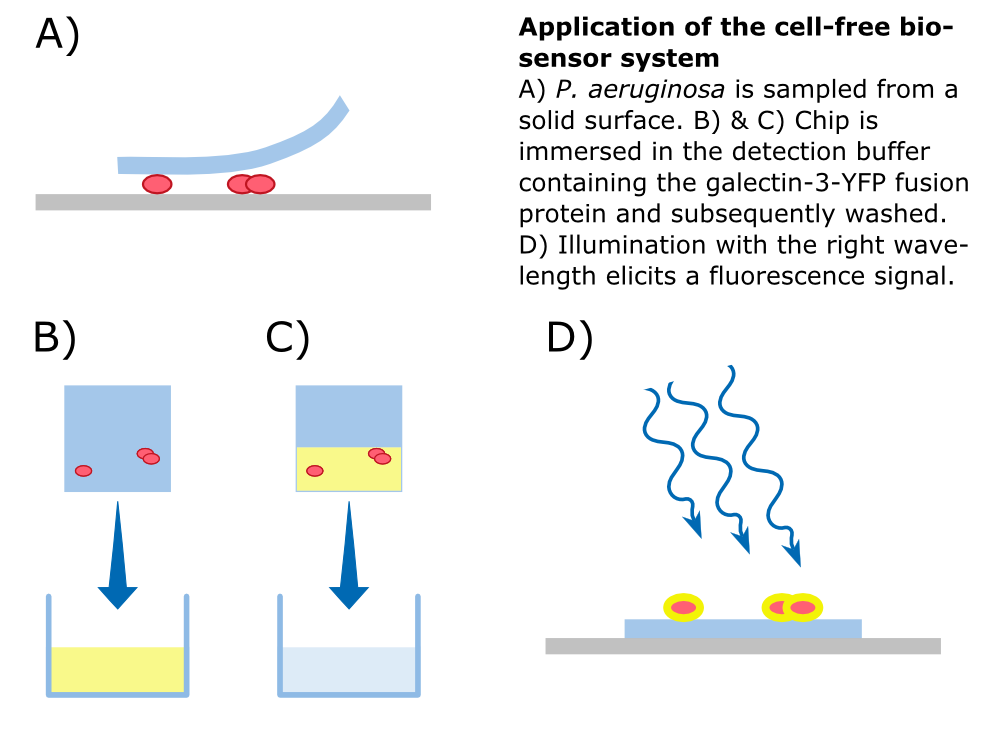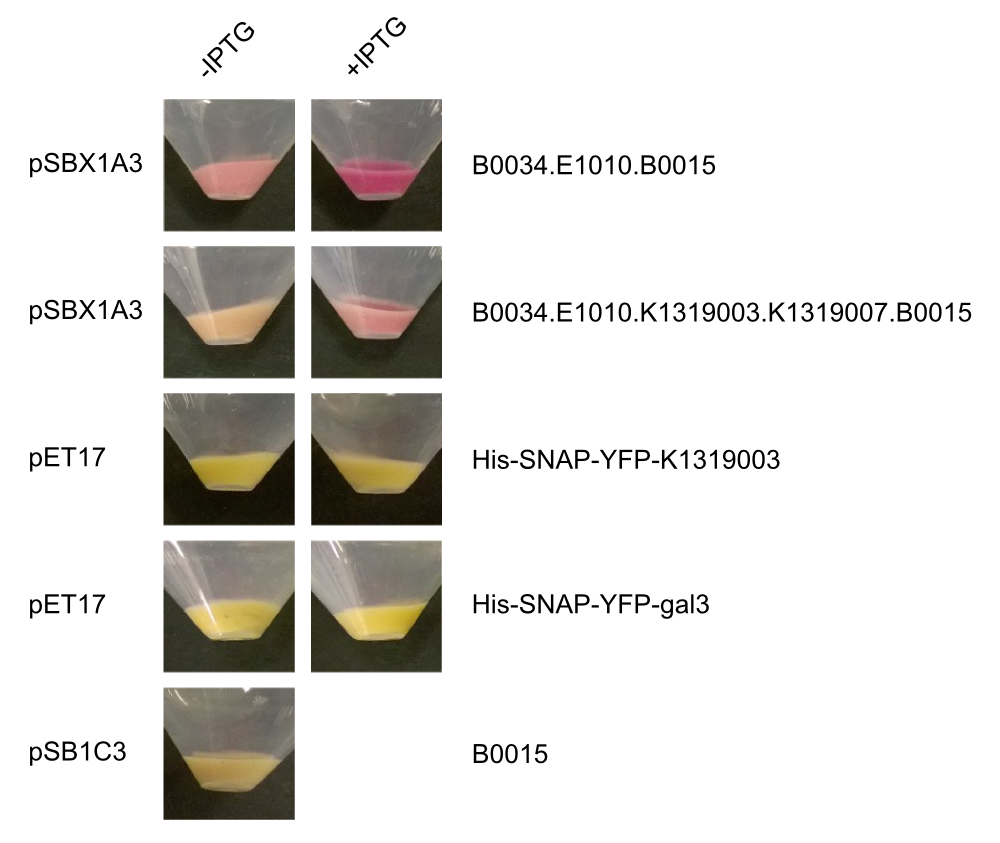Team:Aachen/Project/Gal3
From 2014.igem.org
(→Idea) |
m |
||
| Line 14: | Line 14: | ||
{{Team:Aachen/Figure|Aachen_14-10-09_Cell_Free_Biosensor_iNB.png|title=Application of the cell free biosensor system|subtitle=A) ''P. aeruginosa'' is sampled from a solid surface. B) & C) Chip which is immersed in the detection buffer containing the galectin-3-YFP fusion protein and subsequently washed. D) lluminated with the right wavelength elicits a fluorescence signal.|width=250px}} | {{Team:Aachen/Figure|Aachen_14-10-09_Cell_Free_Biosensor_iNB.png|title=Application of the cell free biosensor system|subtitle=A) ''P. aeruginosa'' is sampled from a solid surface. B) & C) Chip which is immersed in the detection buffer containing the galectin-3-YFP fusion protein and subsequently washed. D) lluminated with the right wavelength elicits a fluorescence signal.|width=250px}} | ||
| - | To detect ''P. aeruginosa'' cells, an agar chip could be used to sample a solid surface. The chip is then immersed in a detection | + | To detect ''P. aeruginosa'' cells, an agar chip could be used to sample a solid surface. However, other materials but agar can be considered to collect the pathogens. The cell stick to the sampling chip which is then immersed in a detection buffer containing the galectin-3-YFP fusion protein. Excess protein is removed during washing in a suitable buffer. The galectin-3 remains bound to the pathogen and '''illumination with 514 nm''', the excitation frequency of YFP, in a modified version of our measurement device reveals the location of the cells. The picture taken by the measurement device can then be analyzed by our software ''Measurarty''. |
{{Team:Aachen/BlockSeparator}} | {{Team:Aachen/BlockSeparator}} | ||
Revision as of 19:30, 9 October 2014
|
|
|
 "
"


